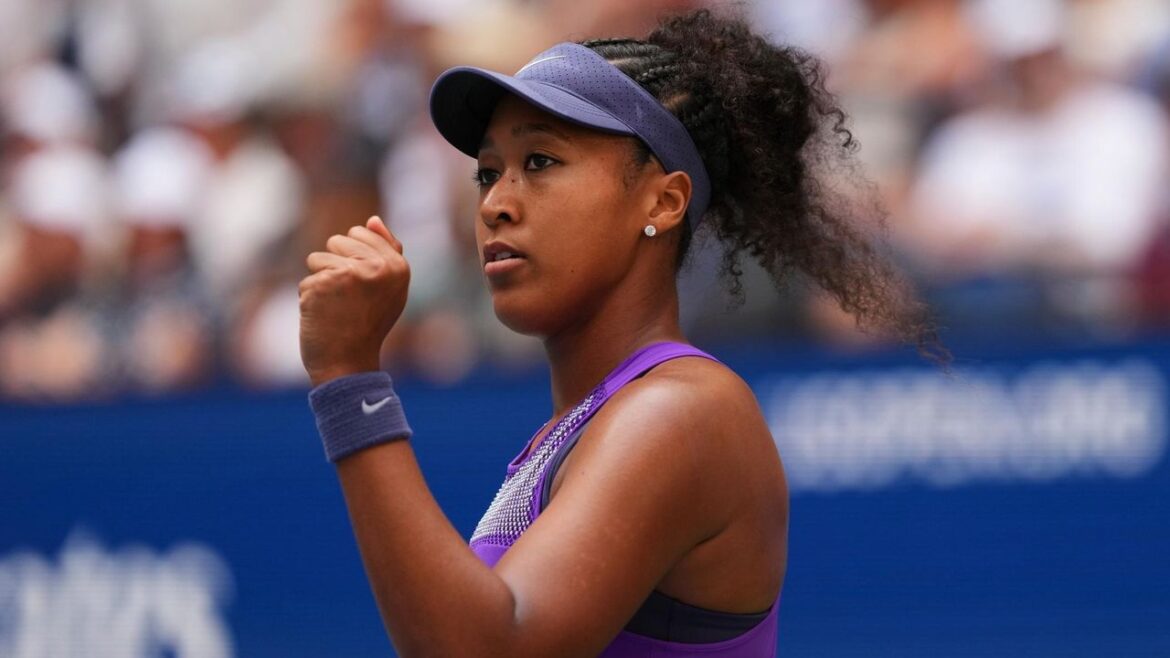It is a scene we’ve seen time and time and time again. Athlete wins championship, athlete grabs child out of the stands, athlete celebrates on the court or the field or the baseball diamond with offspring in arms.
Until recently, that athlete had always been a man though that has been slowly changing with the growth and popularity of women’s professional sports. A new generation of children are growing up watching their mothers compete as professional athletes.
This year there were seven mothers competing in the singles draw of the U.S. Open. One of them, Naomi Osaka, is still alive and needs just three more wins to become the first woman to win the tournament as a mother since Kim Clijsters did it in 2009 and 2010.
Osaka, a two-time U.S. Open champion, is playing like a mom on a mission.
Producing her best tennis since returning from maternity leave 17 months ago, Osaka took just 64 minutes to crush No. 3 seed Coco Gauff in straight sets in the fourth round. Next up is No. 11 Karolina Muchova whom she will meet in the quarterfinals Wednesday.
Osaka and her former boyfriend Cordae, an American rapper, celebrated the birth of their daughter Shai in July of 2023. Osaka returned to training a week after giving birth, but did not return to competition for another 17 months. Two weeks before the start of this year’s open, Osaka released a documentary — “The Second Set” — that chronicles her return to the court while navigating the early stages of motherhood.
“My return to sport is a love letter for moms,” Osaka, 27, said in the trailer for the film. “Some people say she ended my career. For me, it feels like she started it. Nothing is ever over, and you’re never out of the game.”
If Osaka goes all the way in the U.S. Open, she would be one of only three women to ever do it as Margaret Court won the last of her five U.S. Open titles in 1973 after giving birth. Only four mothers have won Grand Slam tournaments in the Open era as Evonne Goolagong Cawley beat Chris Everett in the final of Wimbledon in 1980.
“I think I’m ready for another mom to win,” Clijsters said before the start of this year’s U.S. Open. “I believe she’s playing so much better. She’s doing well, so I think on the women’s side, Naomi is going to win.”
Is it possible to actually play better tennis after giving birth than before? Well, yes, judging from Clijsters results. Clijsters won three of her four Grand Slam titles after becoming a mother at age 24, adding an Australian Open title to her U.S. Open titles.
Clijsters and Osaka were relatively young first-time mothers. Not only might this be an advantage in their road back to playing competition, it also means that they have a significant amount of time left to play in their career when they did return.
Contrast that with Serena Williams. The greatest women’s player in the history of the game was 35, a decade older than Osaka, when she gave birth. Williams, who did win the Australian Open while eight weeks pregnant, reached the finals of four Grand Slam tournaments as a mother and went 0-4.
In her first U.S. Open as a mother, she lost to 20-year-old Osaka in an infamous match that ended with both players crying because of a controversy with chair umpire Carlos Ramos.
That, of course, seems like a world ago to Osaka who went on to win three more Grand Slam titles before taking a couple breaks for mental health reasons and then to give birth to her daughter. Now, she says she is just trying to live in the present and enjoy every moment of this journey at the U.S. Open.
“I’m a little sensitive and I don’t want to cry, but honestly, I just had so much fun out here,” Osaka said on the court after beating Gauff. “I was telling everyone, literally I was here in the stands two months after I gave birth to my daughter, watching Coco. I just really wanted an opportunity to come out here and play. This is my favorite court in the world, and it means so much to me to be back here.”
And it would mean even more for her to win. Not just for her, but for mothers, athletes or not, who have faced the doubts and struggled to return to jobs they loved after starting families. Osaka revealed in her documentary that her daughter was the primary reason that she returned to the game.
“In the past, I feel like I’ve played for different people,” she said. “Now, I feel like I’m playing for Shai, wanting her to see me play and understanding how big tennis was in my life was one of my biggest motivations coming back.”
And maybe, if all goes well, Shai will be out there on the court celebrating with her mother on Saturday.
Barbara Barker is an award-winning columnist and features writer in the sports department at Newsday. She has covered sports in New York for more than 20 years.


AloJapan.com